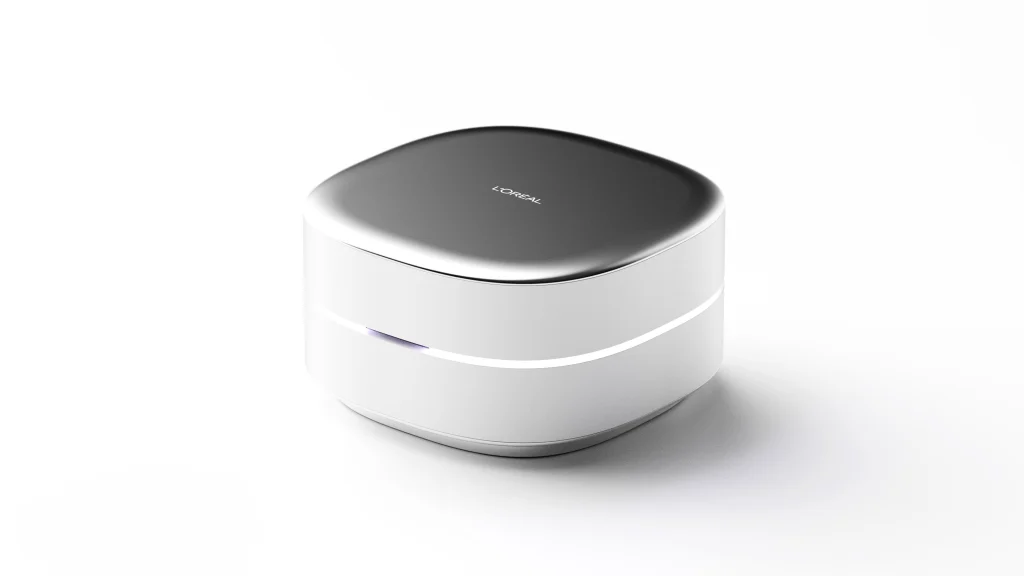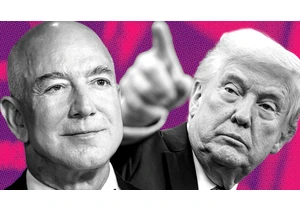Choosing skincare products often comes down to a matter of trial and error.
A tabletop device unveiled by L’Oréal, called the L’Oréal Cell BioPrint, is intended to change that. It will offer visitors to L’Oréal-stocked beauty counters the ability to analyze their skin for signs of biological aging, responsiveness to particular active ingredients, and likelihood of conditions like dark spots or enlarged pores. As a result, the company claims, people will be able to choose the skincare products that are most effective for them.
“We have very good imaging systems that can tell you about what is on the surface of your skin, but what is on the surface of your skin has already happened,” says Guive Balooch, global managing director of augmented beauty and open innovation at L’Oréal Groupe. “What matters for the future and for people to really get the right product is to understand their individual biology, and that has been something very challenging to do at scale.”
The new technology will let shoppers take a quick sample of their skin with a painless sticky tape and deposit it onto a test cartridge along with a drop of test solution, then insert it into the device for an analysis of various protein-based biomarkers. Within a few minutes, the user and an adviser at the beauty counter will be able to see a report on an in-store tablet they can use to guide their skincare product considerations, knowing what products are most likely to be effective and what skin issues may pop up in the future. That way, Balooch says, shoppers can shape their skincare routines to address issues like dark spots or wrinkles well before they actually crop up.

“The goal is to let people be able to really, for the first time, get to know what they can do to correct the future of their skin health,” says Balooch.
L’Oréal’s experts have spent decades identifying biomarkers that can predict skin health, but it wasn’t previously possible to do a real-time analysis or spot them in a sample without a traditional laboratory. The company worked with South Korean company NanoEntek, which has experience creating miniaturized biological analysis tools, to develop the technology, which Balooch says compares favorably to traditional lab-grade equipment. The analysis has been tested on roughly 1,000 different skin types and tones from across the world to ensure it’s helpful for a wide range of customers.
Balooch says L’Oréal intends to deploy the devices to thousands of beauty counters across the globe beginning in about a year. The exact business model, including any cost to the consumer, is yet to be determined. The company plans to offer training to help beauty advisers use the new equipment, though Balooch says it’s designed to be easy and quick to use. And as L’Oréal’s researchers continue to find new biomarkers that can inform skincare decisions, they can be added to the Cell BioPrint analysis, Balooch says.
Advisers will also have a role in helping customers choose the right product based on their test results, since they’ll also likely consider factors like how long a particular product lasts, thickness, and other factors beyond just the active ingredients, he says.
“We’re making sure that the product recommendation is equally as strong as the assessment,” Balooch says. “We’re working very hard on that so people get the right product.”
Connectez-vous pour ajouter un commentaire
Autres messages de ce groupe

Influencers get a lot of stick these days. The latest thing they’re being blamed for: shark attacks.
Scientists have noted a recent rise in shark attacks, and according to new research p

As artificial intelligence gets smarter, a growing number of companies are increasing its implementation in their operations or more heavily promoting their own AI offerings. The buzzword for this

Consumers are only just starting to feel pain from Trump’s Liberation Day tariff spree. Amazon

When Donald Trump returned to the White House in 2025, many in the tech world hoped his promises to champion artificial intelligence and cut regulation would outweigh the risks of his famously vol

The first 27 satellites for Amazon’s Kuiper broadband internet constellation were launched into space from Florid

There are so many ways to die. You could fall off a cliff. A monk could light you on fire. A bat the size of a yacht could kick your head in. You’ve only just begun the game, and yet here you are,

Former Tinder CEO Renate Nyborg launched Meeno less than two years ago with the intention of it being an AI chatbot that help
